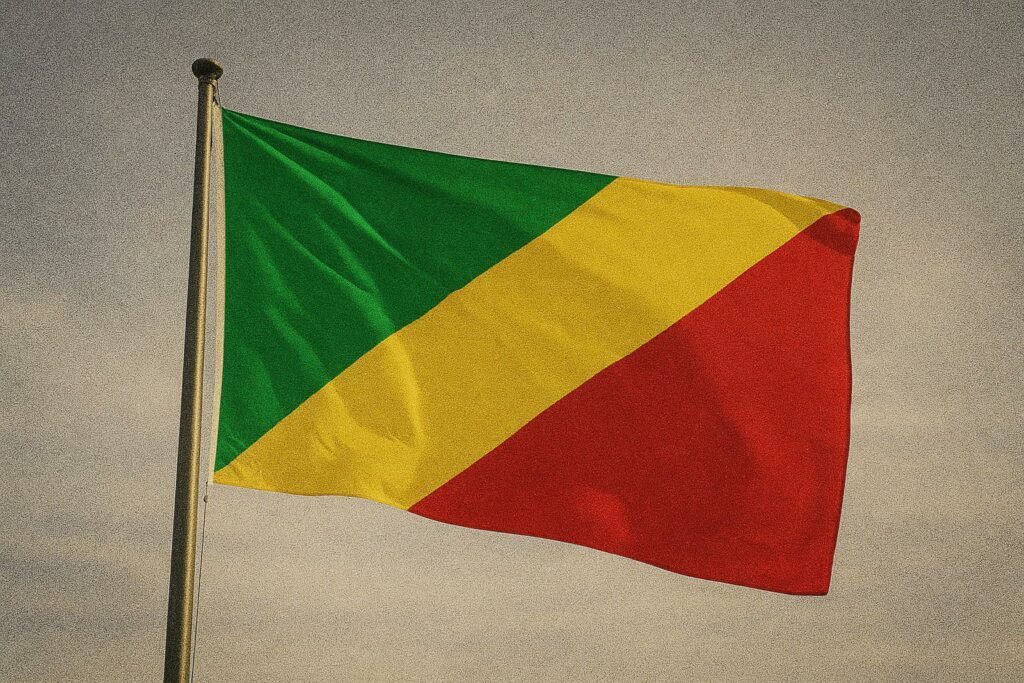Strategic crossroads in the heart of Central Africa
Few capitals illustrate Africa’s geographic intimacy better than Brazzaville, seated on the northern bank of the Congo River and facing Kinshasa at arm’s length. From this vantage point, the Republic of the Congo projects influence across a neighbourhood that includes Gabon, Cameroon, the Central African Republic, the Cabinda enclave of Angola and the far larger Democratic Republic of the Congo. The country’s modest Atlantic shoreline offers an outlet to global trade, while an interior carpeted by one of the world’s most significant rainforests places it at the centre of contemporary climate diplomacy.
Governance continuity and calibrated political stability
Since regaining independence from France on 15 August 1960, Congo-Brazzaville has experienced alternating phases of reform and consolidation. President Denis Sassou Nguesso, in office for much of the past four decades, has pursued a political model that privileges incremental change over abrupt disruption. The 2021 presidential election, validated by regional observers from ECCAS, reiterated this preference for continuity, with turnout in several northern departments exceeding 70 percent. While opposition parties continue to call for deeper decentralisation, diplomatic missions in Brazzaville generally underscore the government’s ability to maintain public order in a volatile sub-region.
Economic diversification under post-pandemic headwinds
The country’s macroeconomic narrative remains tethered to hydrocarbons, which account for roughly half of GDP and 80 percent of export receipts (IMF 2023). Nevertheless, Pointe-Noire’s deepwater port now handles a growing volume of agri-food and timber products, evidence of tentative diversification. The Ministry of Finance expects non-oil growth to reach 3.8 percent in 2024, buoyed by public-private partnerships in road construction and digital services. International creditors welcomed Brazzaville’s 2022 debt-reprofiling agreement as a sign of prudent fiscal management, noting that the debt-to-GDP ratio fell from 110 percent in 2020 to below 90 percent last year.
Energy ambitions beyond conventional crude
Congo-Brazzaville’s 2018 accession to OPEC signalled a determination to play a more pronounced role in global energy governance. The Marine XII block’s floating LNG project, expected to deliver its first cargo this year, aligns with the government’s stated goal of transforming the republic into a regional gas hub. Officials emphasise that associated gas, previously flared, will now be channelled into domestic power plants, reducing urban electricity shortages and advancing nationally determined contributions under the Paris Agreement. European utilities, seeking non-Russian supply options, have held exploratory talks with Brazzaville, underscoring the strategic value of its reserves.
Custodian of a carbon sink of global consequence
The northern departments of Sangha and Likouala shelter vast peatlands that sequester an estimated 30 billion tonnes of carbon, a figure comparable to global aviation emissions over two decades (UNEP 2022). Brazzaville has therefore positioned itself as a linchpin in international climate negotiations, co-hosting with Kinshasa the 2023 Three Basins Summit that gathered heads of state from the Amazon and Southeast Asian rainforest regions. A sovereign carbon registry, established in cooperation with the African Carbon Markets Initiative, aims to channel revenue into community forestry and anti-poaching patrols, thereby marrying environmental stewardship with rural livelihoods.
Diplomacy that looks east and west
Paris remains an influential partner, yet Brazzaville’s foreign policy today is markedly non-aligned. Chinese concessional finance under the Belt and Road Initiative paved the way for the new National Route 1, while Turkish contractors are refurbishing the Maya-Maya airport terminal. In multilateral fora, the republic frequently votes with the African Union consensus, backing conflict-mediation efforts in Sudan and the Sahel. Its tenure on the UN Human Rights Council in 2025–27, already announced, is viewed in diplomatic circles as an opportunity to showcase Central African perspectives on equitable vaccine distribution and climate finance.
Measured optimism amid structural challenges
Inflation, recorded at 3.2 percent in 2023, remains below the CEMAC convergence ceiling, yet structural challenges endure, notably youth unemployment estimated at 19 percent (World Bank 2024). Authorities have launched an Innovation Hub in Brazzaville to nurture start-ups in fintech and agritech, signalling an intent to harness demographic dividends. Analysts caution, however, that sustained progress will require reinforcing the judiciary and improving the business climate, a point acknowledged by Prime Minister Anatole Collinet Makosso in his most recent policy statement to parliament.
A republic negotiating the currents of its own river
Congo-Brazzaville is neither a development darling nor an international pariah; rather, it is a mid-sized African state leveraging its ecological patrimony and hydrocarbon wealth to secure a seat at influential tables. Diplomats stationed on the banks of the Congo River often remark that the republic’s greatest asset is its capacity for quiet consensus-building. If the government succeeds in translating oil revenue and carbon credits into inclusive growth, Brazzaville may yet become an exemplar of pragmatic statecraft in a rapidly evolving geopolitical landscape.

